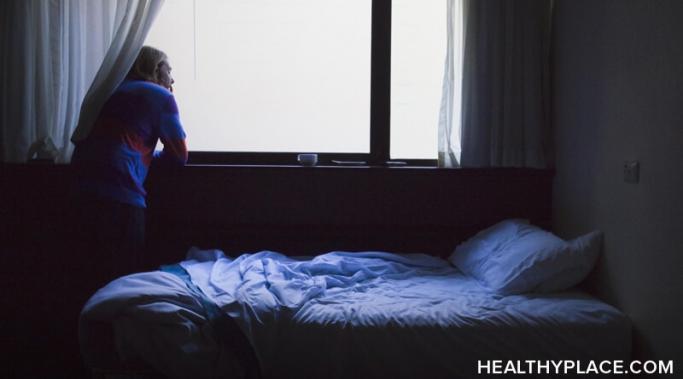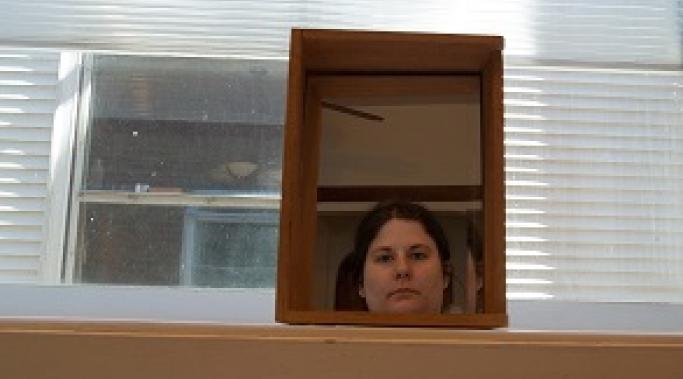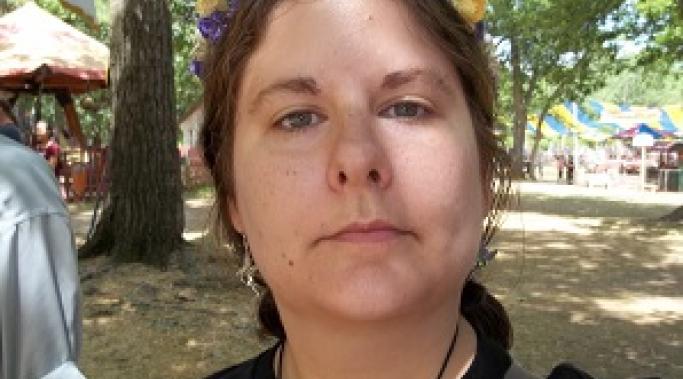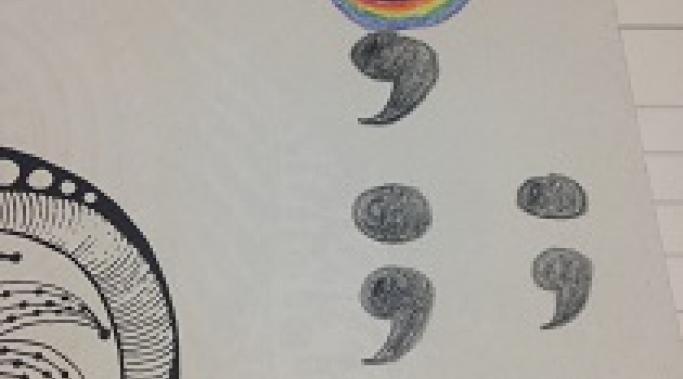Traveling with schizophrenia or schizoaffective disorder can make vacations tricky. If your schizoaffective symptoms flare up over the vacation, you can’t help but feel disappointed—and disoriented. You know you can’t take a vacation from yourself (or your disorder). And, even if the vacation goes well, then you might feel depressed when you get home and it’s all over. This is how recent traveling affected my schizoaffective disorder.
Living with Schizophrenia
Sometimes people don't work because of schizoaffective disorder or schizophrenia. When you consider that we currently live in a political climate in which the government seems determined to slash Social Security and mental healthcare coverage, the challenges of working with a mental illness become even more alarming. I am very privileged in that even though I'm not working because of schizoaffective disorder, my support network allows me to live a normal life.
I have mourned who I was before mental illness. When I was 19 years old and a student at The Rhode Island School of Design (RISD), a psychiatrist delivered my diagnosis of schizophrenia. Four years later, when I was back in my hometown of Chicago and had just started earning my master’s degree, I was re-diagnosed with schizoaffective disorder, bipolar type. Here’s how my life changed when I was diagnosed with schizophrenia, and later schizoaffective disorder and why I mourn who I was before mental illness.
“Adulting” can be hard enough without schizophrenia or schizoaffective disorder. When you have a mental illness, even seemingly simple things like keeping the apartment clean add up to be monumental tasks (Guilt, Shame, and Responsibility in Mental Illness). Here’s how my schizophrenic and schizoaffective symptoms get in the way of adult obligations, even though I keep tackling them head on.
I have schizoaffective disorder, which is a combination of schizophrenia and bipolar disorder. I also have generalized anxiety disorder (anxiety disorders frequently accompany bipolar disorder). On top of that, I have pre-menstrual dysphoric disorder (PMDD) which is like the pre-menstrual syndrome (PMS) many women experience but worse. Much, much worse. It is especially bad when you already have a disorder like schizophrenia or schizoaffective disorder, a cascade of additional mood swings and depression.
Some lean on faith to cope with schizophrenia or schizoaffective disorder. My schizophrenic and schizoaffective symptoms brought me to the emergency room recently and to other places of crisis. The last time this happened, my faith in God helped me get through the tough time (A Conversation with God). But, as I got better, I didn’t have an immediate need for faith and my spirituality fell to the wayside. This time, I’ve decided to stay in the present with my faith as a way to cope with my schizophrenia and schizoaffective symptoms.
I have schizoaffective disorder, which is a combination of schizophrenia and bipolar disorder. I recently completed a partial hospitalization for a schizoaffective disorder program, and taking the train to the hospital every day reminded me so much of the time, nine years ago, when my schizoaffective symptoms got so bad that I was admitted as an inpatient in the psychiatric ward of this same hospital. Here’s what it’s like to experience hospitalization for schizoaffective disorder or any mental illness.
I do miss the voices in my head occasionally. Most people who hear voices in their head would give anything to get rid of this scary and disruptive symptom of schizophrenia and schizoaffective disorder (Auditory Hallucinations: What's It Like Hearing Voices?). I’m one of them. Yet sometimes I wish I could have an episode of hearing those voices in my head. Here’s why.
Help for suicidal thoughts in the hospital is important. In recent weeks, I spiraled into negative thinking patterns that induced suicidal thoughts. Usually, I have a pretty good handle on my schizophrenic or schizoaffective symptoms, but this time I knew I needed professional help. Here’s what I did to get help for suicidal thoughts related to my schizoaffective disorder.
*** Warning: this post contains frank discussions of suicide and suicidality. ***
Feeling suicidal when you live with schizophrenia and schizoaffective disorder is common, and I’m no exception (Schizophrenia, Schizoaffective Disorder, Suicidal Ideation). I’ve been feeling suicidal with schizoaffective disorder for over a decade—even when things are going well, the possibility of suicide has lurked in the back of my mind like a sleeping monster. And right now, not only do I have schizophrenic and schizoaffective symptoms to worry about, but the world seems to be falling apart around me.









